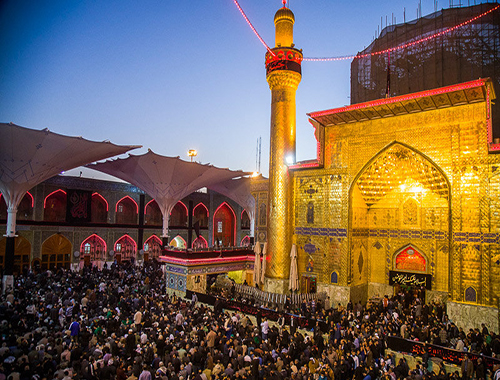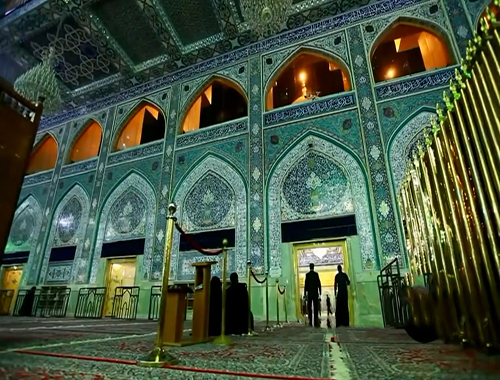C. WHAT IS THE ALTERNATIVE?
- Details
- Hits: 3654
C. WHAT IS THE ALTERNATIVE?
God could have made us all like angels, without any independent will or pow( r of our own. But in that case man's virtues would not have been worth any praise. It was and is the plan of God to give us power and will to do as we like, because only then can we be responsible for our good or evil deeds. And only then can we feel that we have achieved something worth its name.
Thus God gave us the will and power to act according to our will. And after this bestowing of power, we were sent to this world to be tested. Try to visualize this world in this light: There is a tyrant king, trying to capture the world and eliminate the God‑loving people from this earth. He goes against the requirements of God to rule justly and mercifully He is thus failing in his test.
On the other side are his God‑loving subjects. What is expected of them? They are expected to live a virtuous life, and to persuade others to follow their example. They feel that God expects them to warn their tyrant ruler because it is the only way to save him from eternal disgrace, and to save his victims from his cruelties. If they choose not to interfere, they too will fail in their test. If they opt to follow the command of God they are performing their duty towards themselves, towards mankind and towards God.
What follows now is either of the two things: either the king accepts their advice, heeds their sermons and follows them onto the path of God; or he ignores their warning and returns to his old tactics. If he follows their advice and returns to the path of God, then it is good for everyone: the virtuous people did their duty by warning him; and he did his own duty by following their advice. All pass the test with flying colours.
But if he ignores their warnings and wants to remove them from his way, then he loses every chance of success in this most important test. But what should be the course of action for those virtuous people? Should they surrender to the king's godlessness, or should they continue in their efforts to make him amend his ways? If they surrender, the success which they have achieved so far would turn into failure. If they do not surrender, they would have no alternative but to endure the hardships inflicted by that tyrant.
To summarize, we can say that (1) every person is, being tested in this world; (2) everybody provides a chance of test for others, as well as for himself. For example, if an ill‑tempered person harms his neighbour, he is failing in his test; but at the same time he is providing a test for his neighbour also. If his neighbour tries to correct his behaviour by his own example, and by persuasion, then he succeeds in his own test, no matter whether his ill‑tempered neighbour changes his attitude or not.
By the way, it is for this reason that Islam expects us to perform our duties towards others without caring whether they perform their duty or ‑tot. After all, as we are undergoing a test, we are like students sitting in an examination hall. No student would like to ruin his answer book just because his classfellow did not write his own test‑papers well.
But why suffer on account of others?
Now comes the other question: Why should we suffer on account of the folly of others? We are not lifeless models; we are human beings. We have got feelings. Why should our feelings be injured just because somebody else is failing in his duties? Likewise, one may ask: "Why should we be inflicted with injuries or loss of life or property, or with sorrows and gloom, in the‑course of what is loosely termed as 'act of God' like flood, earthquake, storms and cyclones?"
All these questions would have been of relevance if the death in this world would have been the end of life, if there had been no Day of judgement. But, at present, the position is as follows:
No matter how great our sufferings, they are not everlasting. We have a sure knowledge that sooner or later, all this trouble will come to an end because our stay in this world will be terminated one day and we will be transferred to another everlasting world. And as soon as we are transferred from this world, our anxiety and trouble will end provided we have prepared ourselves for it.
According to our belief, God rewards man for his sufferings, whether he be a Muslim or a non‑Mu‑slim. [1] Those persons who have committed sins get reward of sufferings in the form of remission of the punishment in the life hereafter. And those who did not commit any sin, like Prophets and Imams, and still suffered most of all, will be rewarded by higher and greater prestige and honor : in the presence of Allah.
Thus according to the Shi'i, a point of view, sufferings of this world ultimately serve to cleanse the man from sins, and to bring him nearer to Allah in the hereafter.











